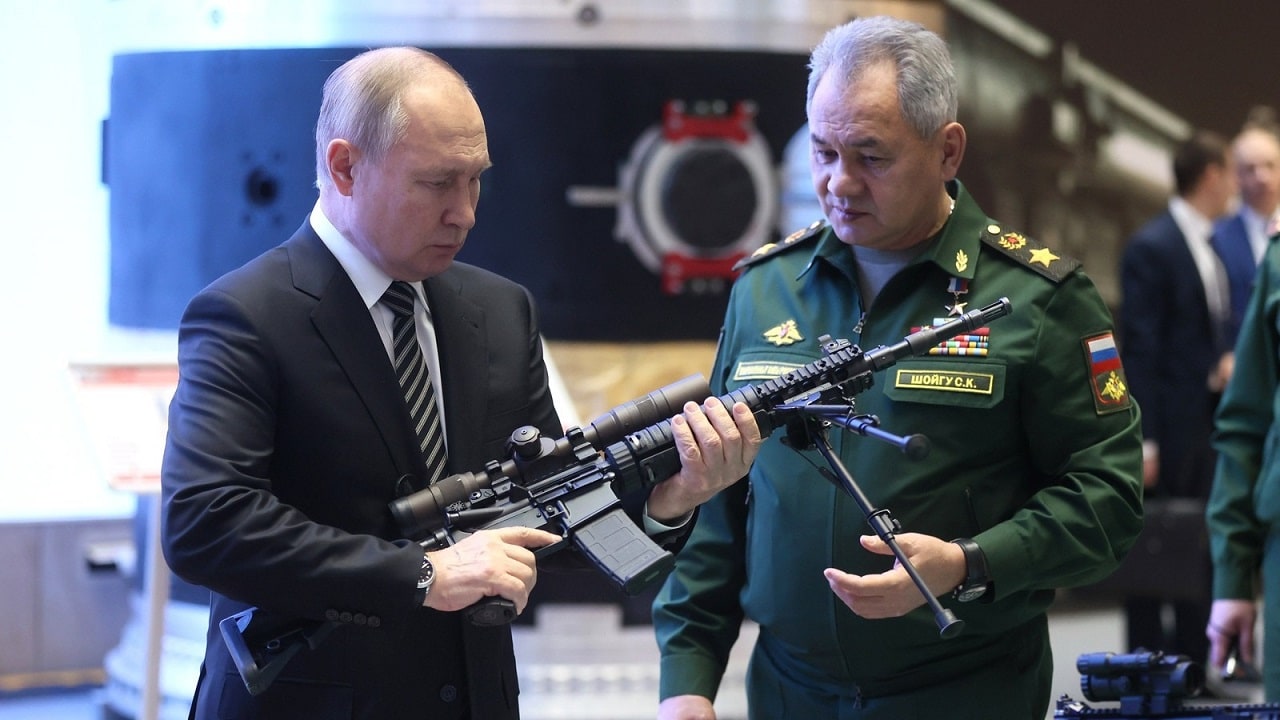Can an independent Ukraine exist peacefully alongside Russia? The answer is surely “yes,” given certain conditions of Ukrainian independence.
Mexico, for example, can exist peacefully alongside the United States despite a long history punctuated by tension and violence. But there are pitfalls. In this context, it is worth revisiting the early twentieth century, when Ukraine gained its first brief, shadowy independence from Russia.
The first modern, independent Ukraine emerged out of the chaos on the Eastern Front of World War I. With victorious German and Austro-Hungarian armies on the march, the war effort of the Provisional Government of Russia collapsed in late 1917. In the churn of the Bolshevik Revolution, a group seized power in Kyiv and rejected the authority of the Moscow government. In January 1918 this council (or Rada) declared independence, a declaration which was ignored by the Bolsheviks. Fighting ensued and resulted in Russian victories that pushed the Rada out of Kyiv. Defeat seemed imminent but was forestalled by German intervention. The Germans swept the Russians out of Ukraine (including Crimea) and helped to formally establish the first independent Ukraine as a client state.
Germany’s interest in Ukraine was tied up in the geopolitics of the First World War. The conscription of massive numbers of soldiers by Germany and Austria-Hungary necessarily reduced those countries’ agricultural output. The British naval blockade exacerbated the problem by making the importation of food difficult. This meant that citizens of the Central Powers were literally starving, even as their armies continued to fight at the front. Ukraine, with its extraordinarily rich soil, represented a possible solution. Indeed, the German intervention and guarantee of Ukraine included a treaty that required the export of large shipments of grain to the Central Powers.
In the early days of 1918, it looked like the gambit just might work. The German Army was prepared to unleash the Ludendorff Offensive in France, and Ukraine offered a glimmer of hope for food on the homefront. But then as now Ukraine was dependent for its survival upon the kindness of foreigners. The Ukrainian central government lacked the physical capacity to manage these shipments, and lacked the symbolic and ideological capacity to convince the population to comply on its own. Thus, Ukrainian grain could not save the Central Powers. And as it turned out, the Central Powers could not save Ukraine. The collapse of German armies on the Western Front in the autumn of 1918 spelled a grim future for Ukraine. Germany withdrew its support for the Kyiv government and the Bolshevik regime tore up the peace treaty that had guaranteed Ukrainian independence.
A second Ukrainian government based on former Austrian possessions declared independence and immediately found itself at war with the new Polish state. The two states would eventually join, but brutal fighting resulted in Polish victory by mid-1919 and Polish occupation of the western reaches of Ukraine. At the same time, a Bolshevik offensive swept across eastern and central Ukraine, seizing Kyiv and driving remaining Ukrainian forces into small pockets between Russia and Poland. The rump Ukrainian government now made common cause with the Poles and briefly drove the Bolsheviks out of Kyiv, but Russian victories and Polish exhaustion snuffed out independent Ukrainian forces by late 1921. Tides of the Russian Civil War swept across Ukraine over the next year but did not result in a new Ukrainian state.
The Ukrainian state that existed in 1918 is a far cry from the Ukraine that exists today. The international legal context is radically different, and norms of state sovereignty have changed. Still, both suffered from the same kind of geostrategic pressures and tensions. The failure of the first state to survive suggests that Ukraine can only peacefully exist in the context of a deeply weakened Russia… and that the existence of an independent and autonomous Ukraine deeply weakens Russia’s security position. But the events that followed the destruction of the first independent Ukrain–Soviet occupation, famine, and the Second World War–surely explain why many Ukrainians remain wary of Russia’s influence.
Now a 1945 Contributing Editor, Dr. Robert Farley is a Senior Lecturer at the Patterson School at the University of Kentucky. Dr. Farley is the author of Grounded: The Case for Abolishing the United States Air Force (University Press of Kentucky, 2014), the Battleship Book (Wildside, 2016), and Patents for Power: Intellectual Property Law and the Diffusion of Military Technology (University of Chicago, 2020).

